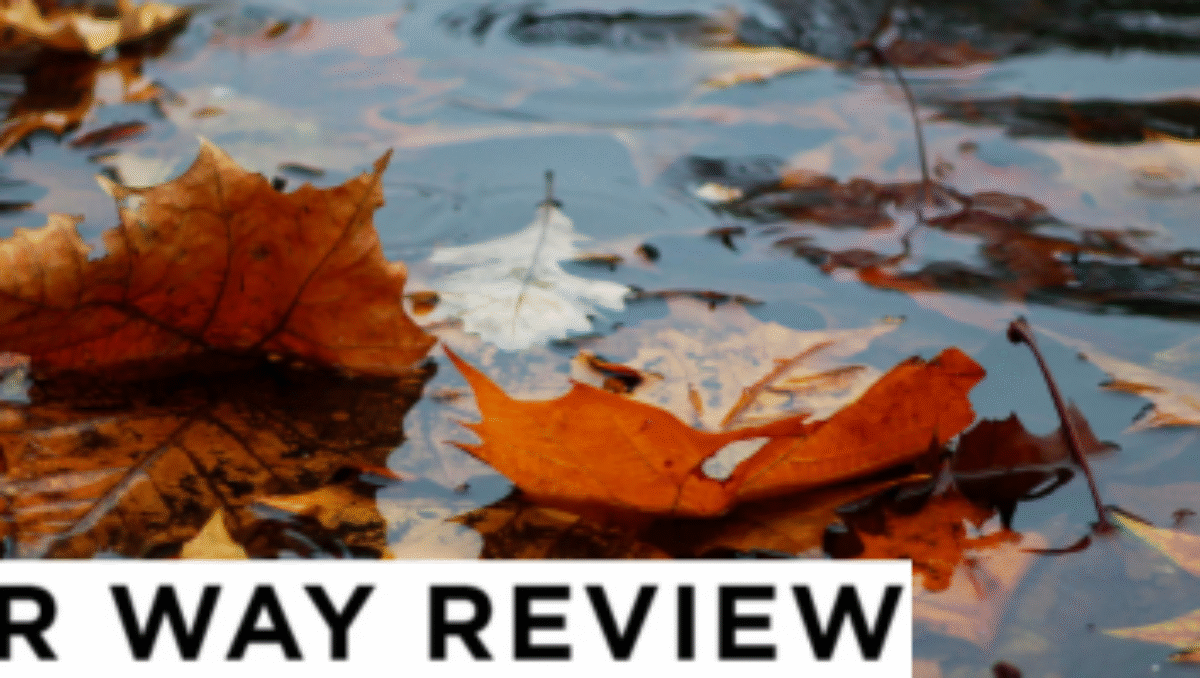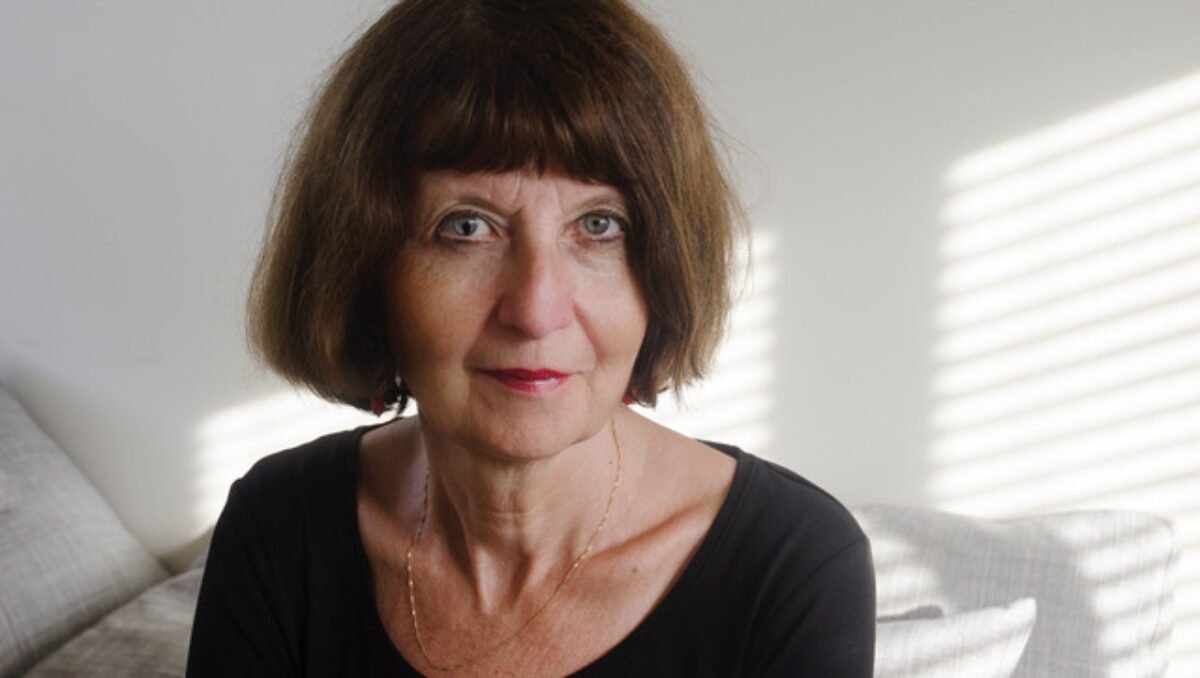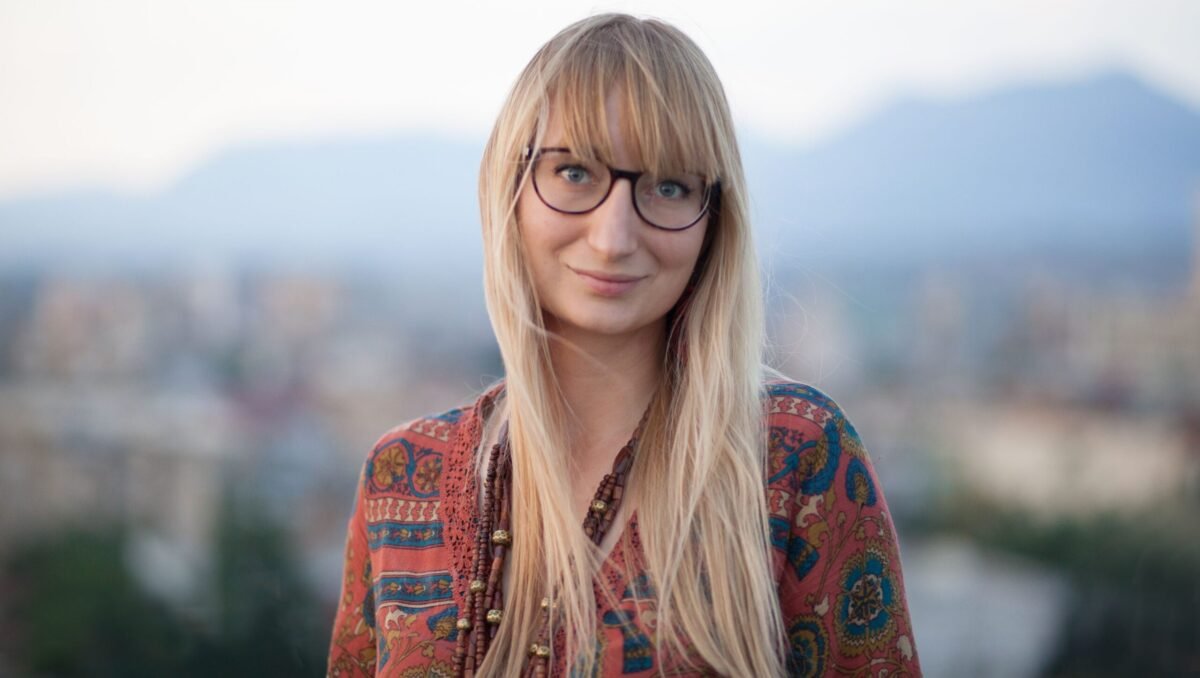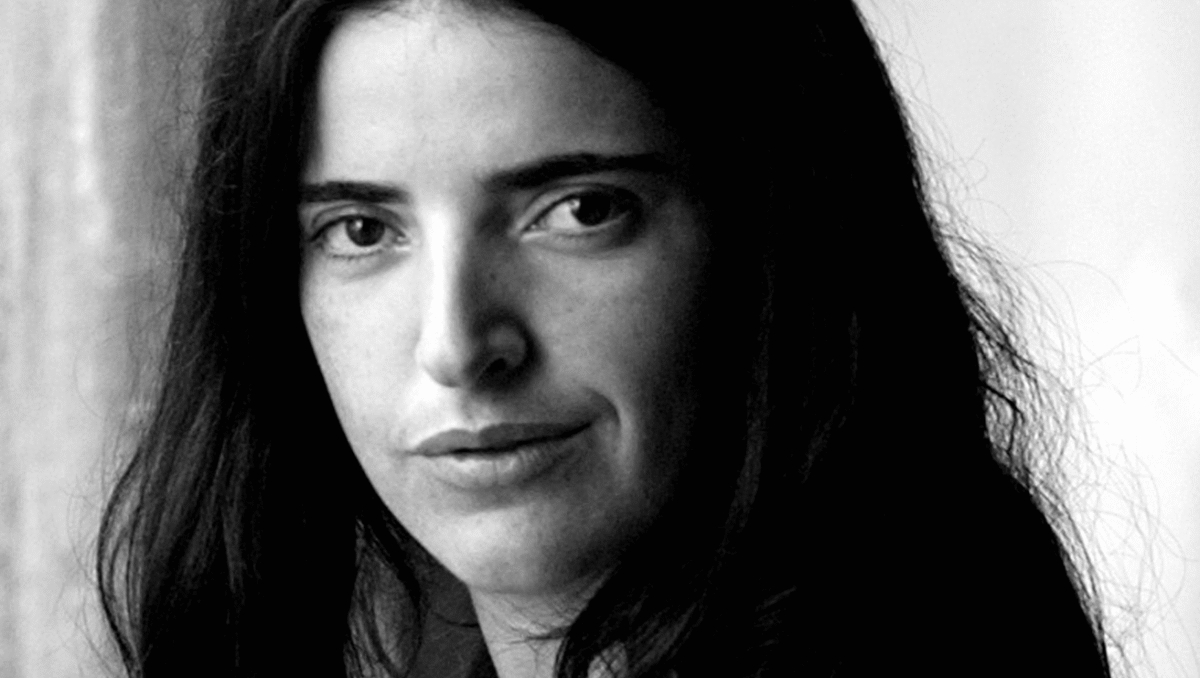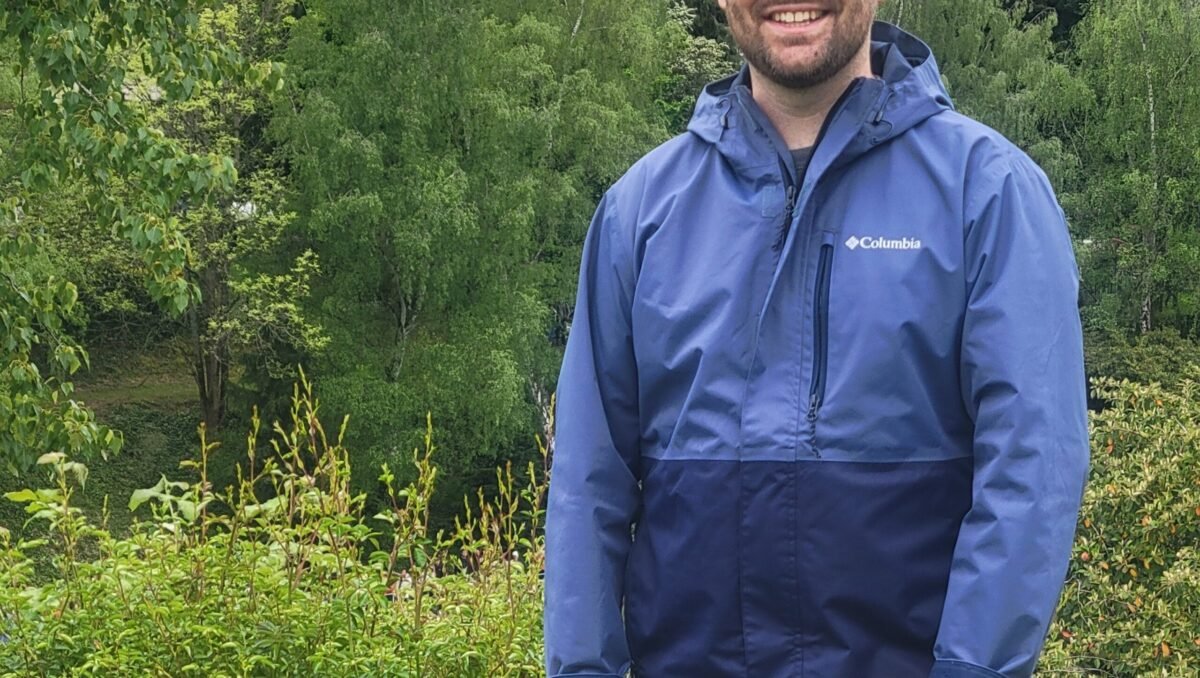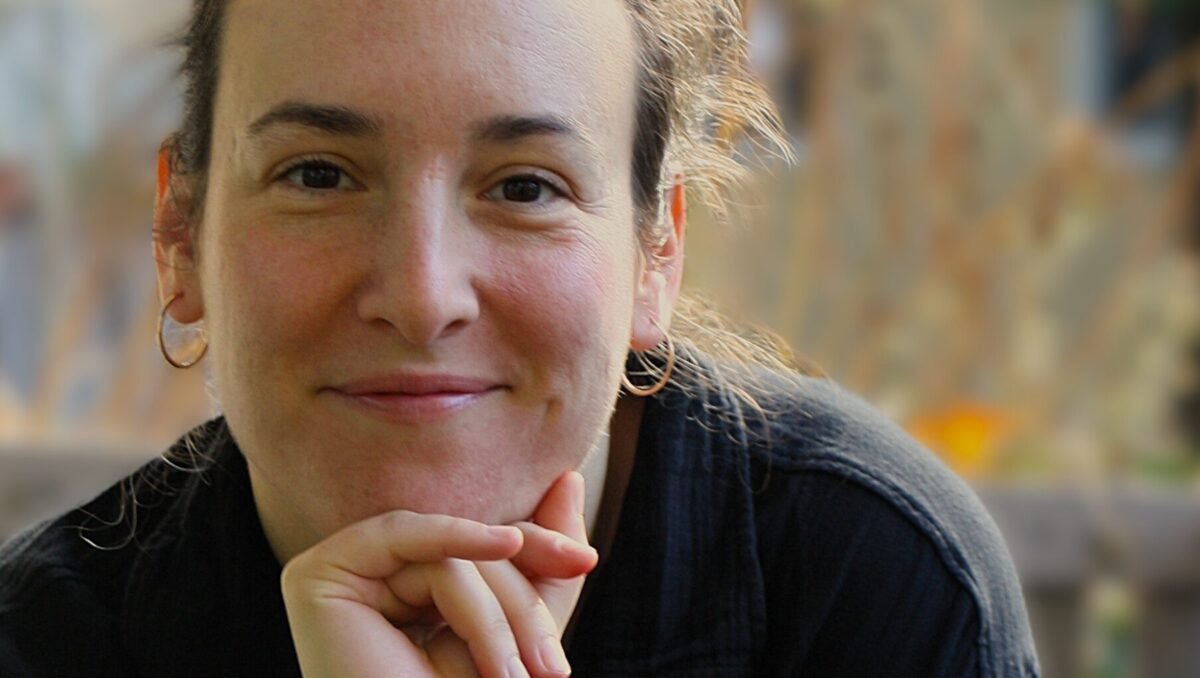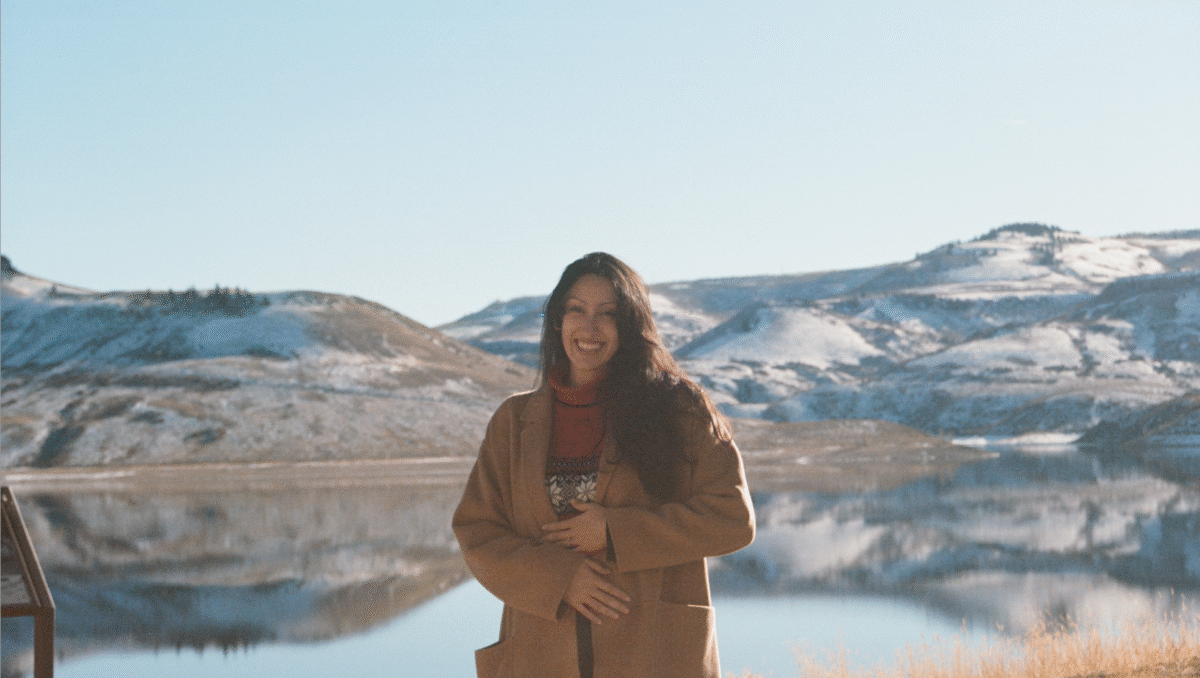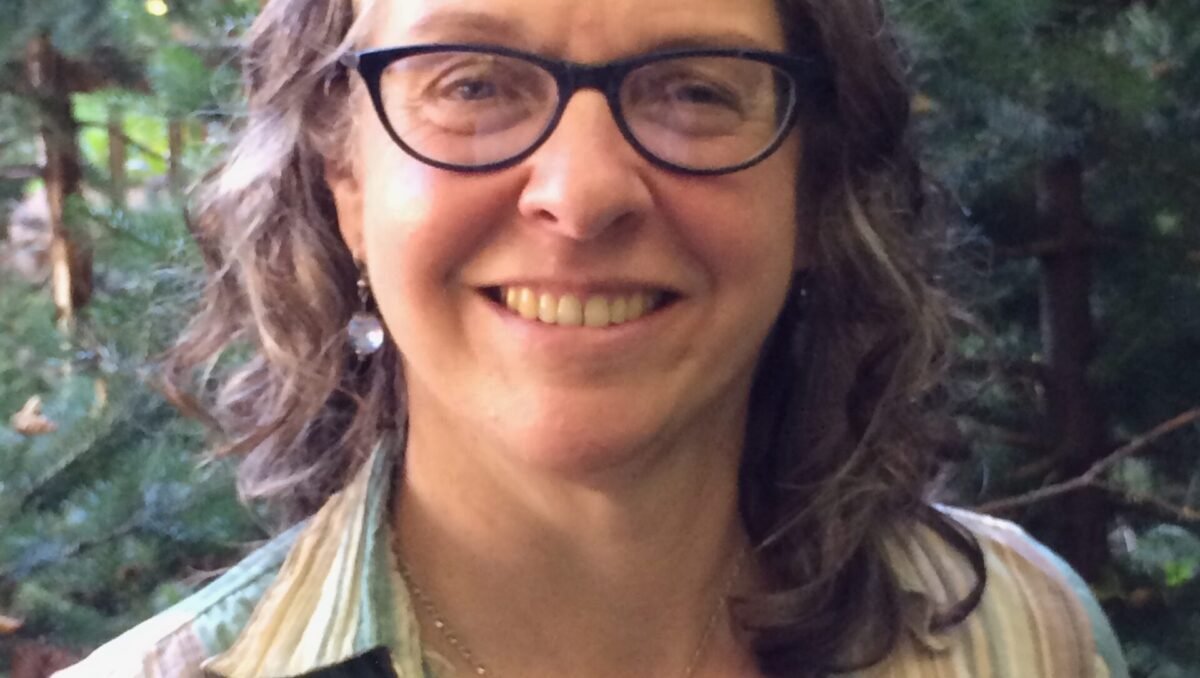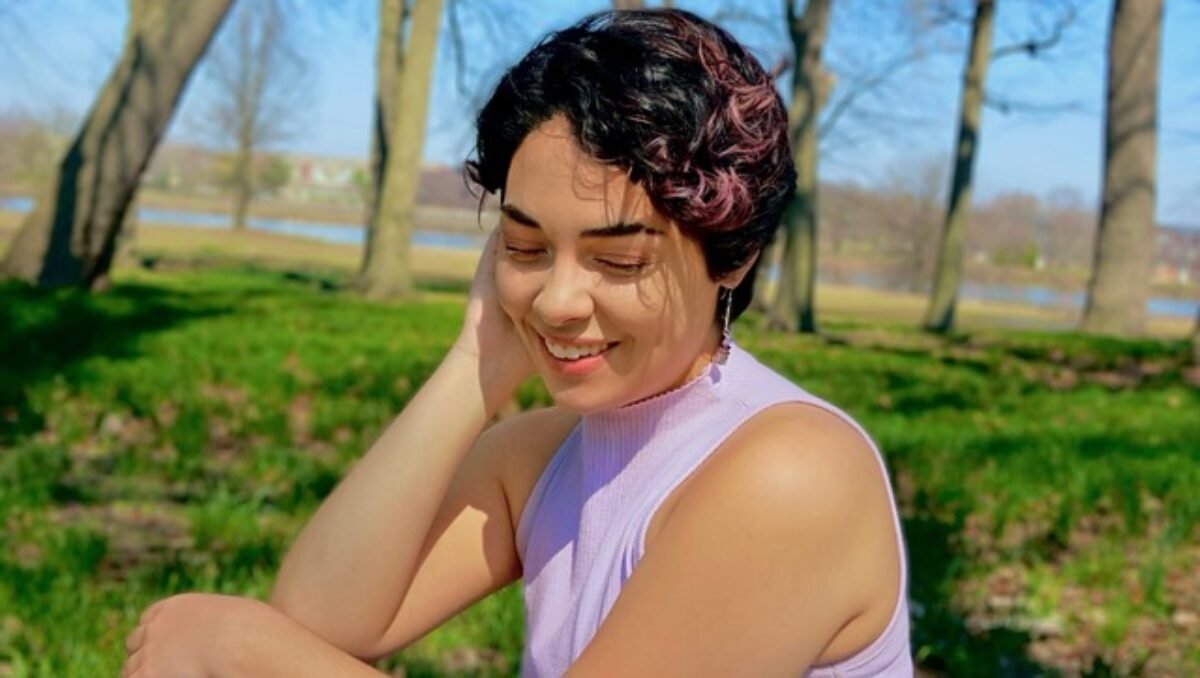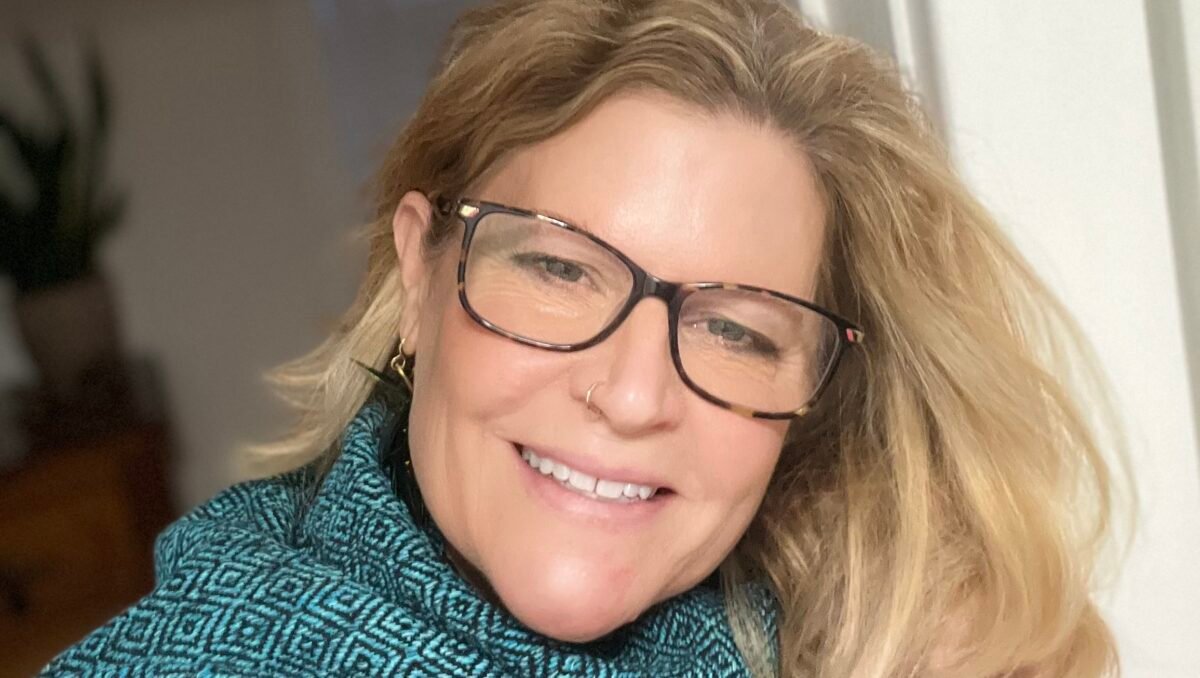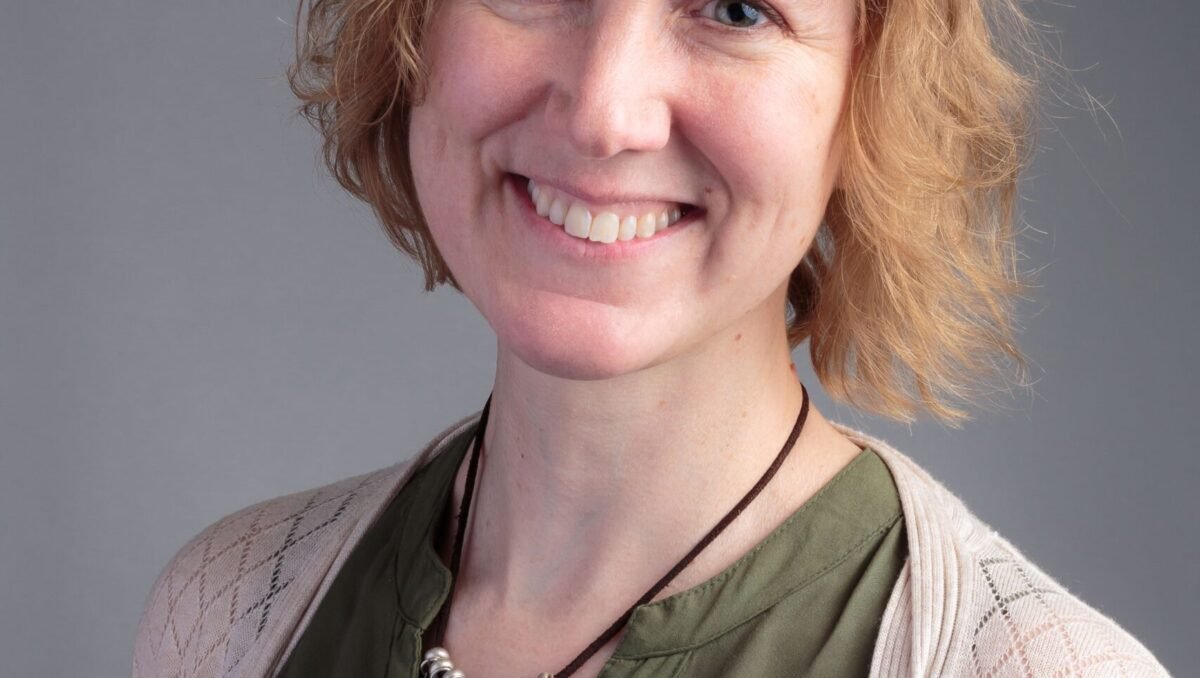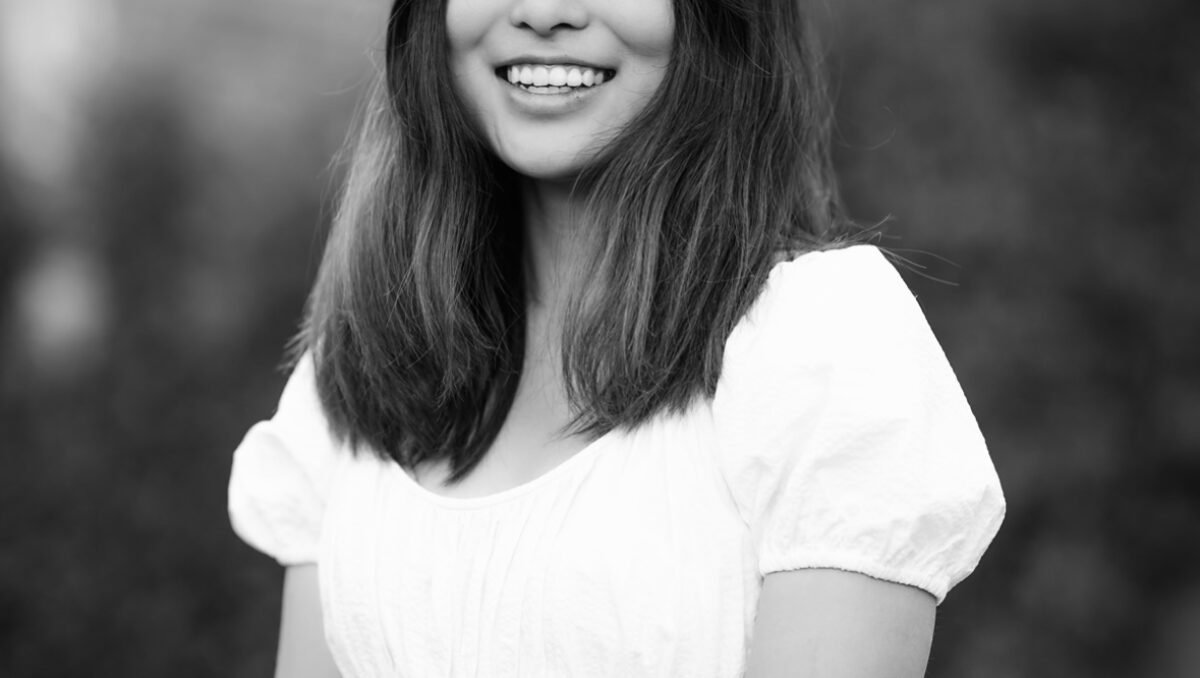ISSUE 34
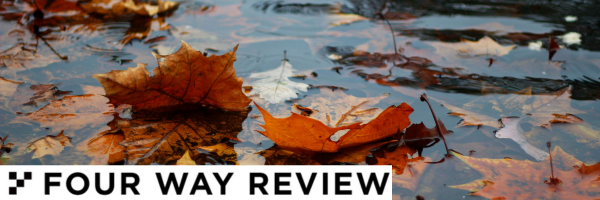
POETRY
TWO POEMS by Caitlyn Klum
TWO POEMS by Rajiv Mohabir
TWO POEMS by Sebastian Paramo
SELF-PORTRAIT AS THE LAST LINGERING PETAL ON A CHERRY BLOSSOM by Anthony Thomas Lombardi
BONE ATLAS by Allison Zhang
HOLLYWOOD FOREVER CEMETERY by Hannah V Warren
GHAZAL OF BORROWED GODS: A CENTO by Laura A. Ring
DAY 559 by Kim Jensen
90% DARK by Dina Folgia
SYRINX by Alison Mandaville
CREATIVE NONFICTION
DIMINUTIVES by Gabriela Valencia
FICTION
ONCE, THERE WAS HOME by Karla Hirsch
SPLIT-UNIT by Ryan Bender-Murphy
TRANSLATION
THREE POEMS by Bejan Matur, translated from the Turkish by Nell Wright
THE HEART OF A SIREN by Margo Rejmer, translated from the Polish by Antonia Lloyd-Jones
FOUR POEMS by Marie Lundquist, translated from the Swedish by Malena Mörling
- Published in All Issues, home, Issue 34
FOUR POEMS by Marie Lundquist, translated from the Swedish by Malena Mörling
What do we do with what we lack? A cleft palate weakness, a harmony,
a sibling with whom to share ourselves. Quick and quarreling the rain
falls on memories no one is polishing. A few remain, hidden as if in
secrecy. New names ring over the graves, mute and soft like
moss-mouths.
*
My memory lines up the alphabet so that I can throw knives at it. Each
word carries an executioner’s hood pulled down over its past. My father
climbs up on rickety ladders and screws new light into fly-speckled
lamps. Always this care for the things. About the enlightened child.
*
To speak without friction about death, about the essence of a poem,
about the untruthful in this, by gestures’ created speech. Not to be able to
believe that you can control your life and let your hair fall everywhere. I
warm my hands on the cheek of the child glowing with sleep and carry
forth the words enveloped in mumblings’ quilt.
*
Who am I? Who are you? I lift my name up from the paper and blow on
it. With my hand I open the mountain you walked through.
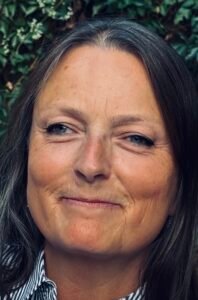 Malena Mörling is the author of two books of poetry: Ocean Avenue and Astoria, and her third collection, Lumina Station, will be published in 2026 by Alice James Books. She has also published translations of work by Nobel Laureate Tomas Tranströmer and together with Jonas Ellerström, a collection of the Finland-Swedish poet Edith Södergran, On Foot I Wandered Through the Solar Systems, the collection 1933 by Philip Levine into Swedish, and they have edited and translated the anthology, The Star by My Head: Poets from Sweden published by Milkweed Editions. Mörling has received a Lannan Literary Fellowship, a John Simon Guggenheim Fellowship, and a Dianna L. Bennett Fellowship from the Beverly Rogers, Carol C. Harter Black Mountain Institute. (Photo Credit: Samuel J. Brady)
Malena Mörling is the author of two books of poetry: Ocean Avenue and Astoria, and her third collection, Lumina Station, will be published in 2026 by Alice James Books. She has also published translations of work by Nobel Laureate Tomas Tranströmer and together with Jonas Ellerström, a collection of the Finland-Swedish poet Edith Södergran, On Foot I Wandered Through the Solar Systems, the collection 1933 by Philip Levine into Swedish, and they have edited and translated the anthology, The Star by My Head: Poets from Sweden published by Milkweed Editions. Mörling has received a Lannan Literary Fellowship, a John Simon Guggenheim Fellowship, and a Dianna L. Bennett Fellowship from the Beverly Rogers, Carol C. Harter Black Mountain Institute. (Photo Credit: Samuel J. Brady)
- Published in Issue 34, Poetry, Translation
THE HEART OF A SIREN by Margo Rejmer, translated from the Polish by Antonia Lloyd-Jones
From the recent collection The Burden of Skin.
The sea was groaning like a wounded beast. Is the sea hungry? Or thirsty? Is it afraid?
Dawn was slipping through holes in the thin curtains. Lying in bed, Enriko began to make out the contours of objects. He listened to the sea. It was calling him as usual, but this time it was full of pain; its sobs were breaking through the roar of the waves and then falling silent on the shoreline. The sea was lamenting – it had called something to mind and was yearning for it. It had seen something and wanted to tell him about it. What a great burden to bear: the capacity to see and remember everything, to be there forever.
Enriko got up and approached the window quietly, careful not to wake his grandmother, and put an eye to a hole in the curtain. Light interlaced with gold. Violet streaks of cloud. And over there in the distance, the steadily breathing body of the sea in infinite motion, arranging itself in stripes of indigo and gold. Enriko touched the cut on the back of his hand and began to suck it, in case something was still seeping from the wound. A chasm of a wound. A scab was slowly forming. Grandma had examined it last night and said it was nothing serious, but the tissue had come apart and there’d be a scar. Maybe on his arm too.
“Men have scars,” she said. “You’ll have more scars in the future. And you’ll be proud of them.”
He gazed at her calm face, sunken cheeks and small, sharp nose. His grandma, composed of nothing but creases and silence, clothed in a layer of widow’s black that would be her skin to the day she died. She smiled to herself as she washed his wound, and swung her head. She smiled the same way when Enriko’s father screamed at her, she was unmoved, as if mentally far away, recalling something not too pleasant, but essentially insignificant. Grandma had scars too, two parallel lines on her forehead, one higher, one lower, and a dimple on her chin, as if cut by a knife. Once when he asked her where they came from, she said life carves marks on people. The crown of her drooping head shone silver, shot through with streaks of dark hair. Both were reflected in the mirror above the table: she was huddled, gone grey, like a mushroom and as patient as a mushroom spawn. Enriko was slender, prematurely stretched like a sunflower, with narrow shoulders and extremely long hands, curly hair that grew so fast his father cut it for him every three months, always brutally, as if he couldn’t restrain his anger at the hair for being so thick and growing as furiously as weeds after rain.
“Curls,” his father kept saying, stumbling on that word and muttering it like a curse. “Curls,” he’d hiss, waving the heavy, rusting tailor’s shears he’d taken from Grandma’s basket. “I’ll cut off your curls, you inhuman creature.”
Grandma sometimes complained that such beautiful hair was wasted on a boy, a girl would have had more use for it.
“You don’t look like anyone, but you do have your mother’s hair,” she once told him. “Though even hers wasn’t quite the same – your hair is bursting with life. Your mother’s dragged her to the bottom.”
He peeped through the hole in the curtain again, his long eyelashes splaying against the fabric. The sea was glittering in the distance like a golden bracelet. It was a soft, subtle morning. Yesterday his father’s belt buckle had slashed Enriko’s body like a knife. His father had beaten him and then left. When he came back he wouldn’t even remember why he did it. He’d look vigilantly in every corner, seeking a new excuse, strong as a bear, with one heavy leg that he dragged behind him, as if it didn’t belong to him. Hobbling. Clatter. At these moments Enriko’s senses were so highly sharpened that he could have read his father’s thoughts, but there weren’t any thoughts in his father’s head, just a swarm of wasps stinging from the inside. The sea glistens. His father is a wine-skin full of foul, murky water. Any moment now this water will come pouring out of him. He’ll try to drown Enriko in it. But Enriko can’t be drowned. If needs be, he’ll change into air. He’ll change into sea foam. With his eyes closed he’ll follow the movement of his father’s eyeballs. His father will strike the first blow, unaware that he’s hitting the crust of a shell, an empty void. Because Enriko will be there already, on the other side. His hair will spread out on the surface of the water. Like black seaweed swaying. The child who emerged from amniotic fluid will return to the water.
He carefully pushed the window frame, raising it a touch without making a sound. Grandma was sleeping on a narrow sofa bed against the wall, on the other side of the room, immobile, with her hands crossed on her chest, as if trying not to take up too much space. If she woke, she’d start her grumbling, as gentle as the ticking of a clock, but endless. Why are you always trailing about by the water? The sea brings nothing but trouble.
Sometimes Enriko fantasized that one day a great storm would arise and the water would pour in all the way to the threshold, seize Enriko and carry him far away, to his mother.
He could feel the faint chill of the flooring under his feet. He slid back the window and ran ahead, and kept running, while his feet exchanged greetings with the stones and sand, feeling their dampness and roughness.
The sea lit up at the sight of him. The pain eased, the first rays of the sun twinkled on the waves. As nobody had ever asked him about it, he’d never told anyone why he plunged into the water every day. He just did. There, the sea came pouring inside, under the cover of his skin too. He loved the sea and he thought like the sea. His interior was the sea, the skin layer just a border separating the sea from the rest of the world. As he lay in bed, he was lulled to sleep by the rocking of waves that flowed through his body, crashing against the shore of his skin.
As every morning, he sang his song to the sea. And it replied with its roar and rocking. As he entered the foam, the waves embraced him. The water began to hiss, washing over the stripes on his hands and forearms, stinging his skin, but Enriko felt gratitude, knowing that salt cleanses wounds. From afar he could see his house, an inconspicuous yellow block with a flat roof, white sliding windows and plastic shutters. He had nothing in common with this house. Here, in the water, was his home. With his eyes closed he could feel rings of it shimmering around him. The sun’s rays danced on the surface of his eyelids.
Stretched out on his back, he continued to drift until the sea said that’s enough and carried him onto the shore.
Now he was on the alert. With back bent, head bowed and nose close to the sand he trotted along, looking to either side. He had changed into a dog. He was tracking. The air was sharp, leaving specks of salt inside his nostrils. The sand smelled of moisture, snail skin and the dried-out bodies of jellyfish. There was no day when he didn’t find something. Long ribbons of seaweed which he braided into plaits, very like the ones the sirens wore. Shells saturated with gold, mother-of-pearl and aquamarine – the valuables offered him by the sea because it loved him. Lots of little gifts. Enriko didn’t need as many, but the sea was loving and generous, and adored pampering him. What he liked best was when it presented him with toys. Sweet wrappers covered in words he didn’t know. Small objects, sometimes of no use, like a flip-flop or part of a plastic deckchair. Enriko couldn’t accept all the gifts, and simply left most of them on the beach. But sometimes there were real treasures: a Smurf figurine, a fluorescent toy spade or a rubber seal pup. Enriko gazed lovingly at the seal pup, and then threw himself into the waves to thank the sea, and floated on his back, with his head submerged and just his nose protruding above the surface. The sea whispered in Enriko’s ear that he deserved everything that was most beautiful, it whispered to him that he was good.
That day Enriko found as many as two gifts on the beach: a piece of glass polished by the water, as lovely as an emerald, and a seashell almost as big as his hand, with thick walls covered in convex stripes. He turned it over in his palm on all sides, drew the tip of his finger over the bulging bands, unable to believe how heavy it was. The sapphire streaks passed into azure, which faded to change into bleached orange, bordering the edges of the shell. It sang the song of the sea into his ear. He felt sure at once that his uncle would like it. His uncle would be so delighted when he saw it that he’d start to draw immediately.
Enriko jumped up and raced ahead, almost unaware of the resistance the sand was offering him. He had changed into the wind. He ran diagonally across the beach, raising clouds of sand around him, until he felt the stab of pine needles on the soles of his feet. Briefly he wondered whether to go home for his shoes, but that meant the risk of encountering his father. It was never entirely clear what business took his father to the city, when he’d be back and what mood he’d be in. Enriko cut across a small wood that separated the beach from the village, and ran on over compacted earth, still damp from the night, full of potholes and ruts, down which on rare occasion the tired, battered cars of residents wobbled their way. On one side stretched an olive orchard that fell away steeply towards a meadow bordering the beach. On the other side rose some ugly bungalows, built here out of longing for peace and safety, but without further thought, painted in garish, self-satisfied colours designed to distract attention from their hideousness. The houses carried large water collectors on their flat roofs, because no authority had ever had the know-how, desire and courage to extend a water system to the village.
“They can’t imagine what their life would be like if they kicked up a fuss, so why on earth should they?” his uncle would say angrily.
They were so alike, Taso and Ana, his uncle and his mother. Twins. So the photos told Enriko. Only a tiny difference in the size of their noses, the width of their faces and the length of their chins betrayed that they were of different sexes, but the set of the eyes, the shape of the lips, and the hair were just the same. Taso had left their mother’s womb first, so in time he had adopted the title of older brother. He had always done his best to protect his sister, and he’d done it well, until he left for Greece, and Ana got married. Looking through his parents’ wedding photos, Enriko sought a trace of his uncle in vain. Taso hadn’t even come when his nephew was born. Only when he learned that Ana had disappeared did he come back. He went round asking questions, paid bribes, and had a fight with someone to a point of bloodshed. Yet the village said nothing. Finally he had founded “Ana’s Bar” to remind everyone that Ana was missing. To disturb their peace. One day someone will come into the bar who who’ll tell me the truth, he kept repeating. In vino veritas, you sons of bitches. That was what he said when he was sober, and also when he was drunk.
Seven years had passed. In this time people had brought him rumours and gossip. They laid accusations on the counter. They drank on credit, promising to bring in eye-witnesses. They lowered their voices whenever they spoke of the culprit. They cursed the policeman and all the police in the country. Those who did business with the police cursed the most.
At eight a.m. the bar was still closed, but Konstantin was already sitting at the counter, Taso’s best friend, who came to the bar early in the morning and was the last to leave. On a good day, he played the accordion, he played acutely and with feeling; Taso would rest his hands on Konstantin’s shoulders and sing, just as if sirens longing for the sea were circulating in his blood stream.
Konstantin patted the chair next to him and moved his plate of white cheese, bread and honey towards Enriko.
“Hey, kid, have you been swimming since daybreak?” he asked.
Enriko nodded and beamed.
“What did you catch?” asked Taso.
Enriko pulled the blue-and-orange shell from his pocket with a beseeching look on his face, and Taso smiled.
“Beautiful. We’ll do a drawing,” he said.
“It’s three months since it last rained,” said Konstantin with a sigh. “People are saying that where the river falls into the sea, on a level with Tanis, you can see the roof of an old ship that used to transport timber. Something for you, Enriko.”
Enriko nodded. Just then Adego and Klodi arrived for morning coffee and news, and when Celestino came in, the bar, which had seemed empty, suddenly became too small. Celestino, nicknamed Concertina, was small and stout, with narrow shoulders, a belly like a ball and a slight squint, and regarded himself as a gigolo. His wife had died young, of heart disease, before she’d had the chance to have a child. He said it was so long ago that sometimes he had to look at her photo to remember her face, and that if he wanted, he could sleep with any woman in town, but he was bothered by diabetes and sweated terribly – and no girl was worth moving from the village across those potholes for. When you’re on your own you can save lots of money and energy, and spend them on all sorts of interesting occupations, such as eating and drinking with your friends.
“That Karaj girl is part snake, part wild cat,” said Celestino to open the conversation. “She came to join her parents from Italy and keeps walking past my house to show how her nipples jump out of her low-cut dress. Konstantin, play something on your accordion at the front door, maybe you can lure her in here.”
Enriko sat against the wall, and on a table covered with a cloth full of holes he lined up the shells he’d brought to his uncle’s bar and kept in a basket near the fireplace. First he organized them from smallest to largest, then according to shape, from the roundest to the most conical, then by colour, from the darkest to the lightest. And over again. He’d listen to the voices and wait for Konstantin to play his accordion, though Konstantin only played in the evenings, and only once his pals had stood him enough drinks.
At twelve Agron checked in, because he always took his heart medicine at noon, and he was sure it should be washed down with walnut rakija, or it wouldn’t work. After drinking it he’d be pensive and stand leaning against the counter, picking his nose with the long, horny nail of his little finger.
“Unlike you lot,” he said, “I respect my health and I hope I’ll be drinking rakija at all your funerals.”
Enriko thought the old man was coming up to eighty, but Taso said he was only a few years short of a hundred. Agron walked exaggeratedly upright, like a soldier, and always wore the same shabby grey trousers pulled high above his belly and held there by a belt. Sometimes Enriko saw the old man from afar, plunging himself into the sea at dawn, but Agron never called him over to join him. Just once Enriko had asked him why he had that long, claw-like fingernail, and without blinking the old man had replied that he pierced lizard hearts with it. From then on Enriko had never approached him again.
In any case, the men at the bar usually ignored him too, only Celestino would say with a laugh, as he drank up: “One day you’ll grow up to be a beautiful girl, Enriko!”
After twelve the bar emptied, so Taso and Konstantin settled on the veranda, smoking cigarettes. Enriko squatted on the steps. He was waiting for the mouse that lived under them to emerge, or for some other little creature to appear for a drink of water from the bowls set out on the floor.
In the distance a man walked past who had stopped dropping in at the bar ever since it became known that he helped his wife to wash the dishes. Celestino had caught him red-handed one day when he knocked at his door with the news that a car with foreign plates had run over his hen.
“What I saw was beyond human comprehension,” Celestino had said in a loud voice as he told the story at the bar. “Mr Dishcloth was standing by a bowl of water, rinsing plates in it! The only thing he was missing was an apron or a skirt.”
Afterwards the wretched man explained that his wife’s fingers were twisted by rheumatism and whenever she washed the plates she broke them; their children had gone far away and there was no one to help at home.
“But he could spout whatever nonsense he liked – the shit has stuck to him anyway,” Celestino concluded. They’d all started calling the old man Mr Dishcloth, and only Celestino called him Carpet Slipper, because he reckoned Mr Dishcloth was too high a compliment for him.
“Who knows,” wondered Celestino, “perhaps there are more like him in the village, but they’re better at hiding it.”
But his pals assured him there was only one Mr Dishcloth.
Enriko raised a hand to greet Mr Dishcloth, who nodded to him from afar, and in Taso’s direction too. Nearby a cat ran past, which showed up at the bar now and then and ate everything they gave it, even bread and potatoes. Enriko had sometimes seen the cat flash by with a lizard or a robin in its mouth. Once Enriko had blocked its path to save the creature, but he soon found out it was impossible to force the cat to give up its prey, even if he tried to distract it with a piece of meat. Another time he and Taso had stopped the cat with a live, struggling sparrow in its mouth, and had poured a bowl of water on its head, but the cat hadn’t even twitched; they’d heard the crunch of fragile bird bones snapping under the pressure of its jaws. The cat stared at them, its eyes shining, because it could feel that sound throughout its body and knew it had got its way. What could they do? They let it go, and Enriko went on offering it yogurt, bits of chicken and bread, hoping to save at least one creature by doing so.
In the distance the village policeman rode by on a ramshackle bicycle without looking in their direction. He had only shown up at the bar once, but Taso had approached him and said something into his ear, after which the man had never come back again.
Enriko took a pencil, a sheet of paper and a shell and placed them before Taso. His uncle glanced at the boy’s hand, at the closing wound, and then looked him in the eye.
“Men have scars,” muttered Enriko.
“Everyone has scars,” said Taso. “But it’s better not to have them.”
Enriko thought his uncle’s hand was shaking as, suspended just above the paper, he drew an outline in the air that would appear seconds later on the paper in the shape of a shell. His long, curly hair cast dancing shadows on the page. Right now, Enriko was thinking, his uncle looked like his mama. The good mama from the photos, whom no one was willing to tell him about. Mama Ana, whom he couldn’t remember. Mama, who had vanished two years after he was born, because she’d changed into a siren.
“Does he often hit you?” asked Taso, looking up from the drawing.
Enriko nodded to say neither yes or no. How many times was often? Every day? No. Sometimes it was enough for Enriko to wobble after the first blow and tumble to the floor, and then his father would stop and walk away, as if he’d remembered other, more urgent matters. Grandma said that essentially his father had a good heart, but Enriko thought his father was lazy. He easily lost interest in beating the child. He didn’t want to lean down to hit him; by and large he rarely kicked him – he preferred to use his hand, his belt or a stick. Looking him in the face. As equal to equal, although they weren’t equal. Grandma would tell his father to stop, or he’d kill the child, and his father would reply that the child could take it. The child had to be as strong as he was. One day he’d be doing the beating. He had to know how. He had to feel it on his own skin. He had to toughen up. A man should be resilient. He’d run into worse things than that in life. And he mustn’t whine. It was all basically to teach him not to cry.
“It’s raining, drip, drip, drop,” hummed Taso and drew Enriko towards him. He rocked in his uncle’s arms just as he did in the water. How many tears had the sea shed to be so salty?
He wiped his face, kissed his uncle on the temple, though he never did that, put a heavy, round shell into his shorts pocket, did up the zip carefully and ran towards the river. From quite far off he could already see the dull, rusty top of the boat sticking out of the water. Nearby the river fell into the sea and the current was strong, but Enriko wasn’t afraid. The water could carry him but never drown him. He took off his shirt and jumped in. The sea is mighty. It can kill anyone if it wants to. His father too could kill anyone if he wanted. But the sea is good to Enriko, the sea embraces him, the sea loves him. And his father wouldn’t want to kill him either. He always knows when to stop hitting. Sometimes Enriko thinks one more blow and he’ll die. The life will fly out of him along with his breath. At these moments he changes into the sea, his consciousness rocks like the waves. But his father knows when to stop. How not to take his life. How to leave some of him for later. Enriko belongs to his father and his family – so it always has been, and so it always will be.
He swam up to the boat and dived. The metal hulk was like a rusty whale. He swam the length of the hull underwater, brushing his fingers against its rough edges. Clinging to its corroded surface were plenty of mussels, sea snails and sea anemones – these interested him the most. Softness hidden inside speckled, calcareous armour. The bumpy texture of rust-eaten metal under his fingers. Trembling dark purple protuberances and long black spines. A vast light overhead, a vast depth underfoot. Boundless water. Boundless time.
When Enriko finally surfaces, in the light of the golden hour his body shines like copper. Just ahead of him rise the honey-coloured walls of sand dunes, shot through with darker streaks of earth, as if someone has laid out graphite ribbons on a quilt of gold. In the distance Enriko can see two small figures on a cliff top, holding a long bundle in their outstretched hands. He blinks. Without much thought, he swims towards the figures: one of them shouts something to the other, until finally it raises both hands, causing the object it’s holding to knock against the ground. Then the second figure drops the burden at its end too. Enriko can see a tall, burly man hobbling in the opposite direction, but after a while he turns around. Once again he shouts something to the person standing opposite him. Enriko swims fast, and the matchstick figures grow before him, gaining details, though both men have their heads hidden under hoods. Once again they grab the bundle they were holding, and with a swing they throw it into the water. For the moment the sun’s rays dazzle Enriko, but now he’s shot through by certainty – the thing the men are throwing into the water was once a human being; a cobweb of long, female hair spreads in the air, the shape falls like a stone, and then there’s a deafening splash of water in the silence, as if a bomb has exploded right in front of him.
He dives. To forget what he has seen. To see with his own eyes. But he can’t see anything beyond the dark, transparent depths. When he surfaces, there’s no one on the cliff top. He swims towards the spot where the body was thrown into the water, but the surface is instantly smoothing over, as if the sea has swallowed the body, as if the body belonged to it. He dives again and again, violently catching mouthfuls of air and going deep underwater. He looks around in all directions, but can’t see a thing. No trace of the body, no trace of the hair. Just flashing shoals of fish and ribbons of seaweed glittering in the water.
He comes up to the surface. The sun’s rays have taken on the colours of fire, the shadows have grown longer. Again he goes underwater, sinking ever lower, immobile, into the darkness and silence of the deep.
And all of a sudden he hears singing, at first distant, like the wailing of the wind, and then his body is pierced by a sound that stuns and terrifies him.
He swims to the shore. He walks along the beach, across the sand, which turns into old gold beneath his feet. The shell in his pocket is weighing him down like a boulder. He walks at a steady pace, as if in a trance, though he has no idea what he has just seen, where he’s going or what he’s about to do.
His legs carry him towards home, and as soon as he can see the modest yellow block in the distance, a shiver transfixes him, because the house in which he has spent his whole life seems alien, as if he didn’t belong to this place or to this world anymore.
Through the open door he enters the house and sees his father, an immobile figure sitting on the couch, absent to a point of lifelessness.
He takes the shell from his pocket and clenches his palm around it. He can feel its weight under his fingers and the hardness of its walls. He only has to go up and strike his father on the one spot on his temple where the skull is fragile. Strike, and then batter his head with a steady motion, again and again, endlessly, just as his father’s blows seemed never ending as Enriko watched him lose his breath from the perspective of the floor.
He only has to throw the shell at his father for the man to leap up like a rabid beast and start to kick Enriko blindly, until he has lost reason, until the life has trickled out of the boy along with his blood.
He looks at the steel blue of his father’s eye, in which there’s no trace of the sea, no touch of longing for the sea.
“Go away,” says his father. “What do you want? I’m too tired to beat you.”
Enriko puts the shell to his ear and hears a whisper. She’s calling him. He drops the shell and runs out into the yard, then races across the sand, which in the light of the setting sun is like coral dust.
He enters the water. The pain changes into the foam of the waves that are washing against the beach, leaving shining stripes on the sand.
But what if the sun never sets? What if it goes on hanging like a red ball over the horizon forever? He, the sea and the sun will freeze and change into a picture. Enriko will dissolve in the sea. He’ll become the sea.
He only has to swim ahead, endlessly.
His heart is beating to a completely new rhythm now, to the rhythm of ebb and flow. With the tip of his thumb he touches the membrane between his fingers. He can feel his body lengthening and growing slender, his legs joining together to form a tail, and instantly his skin is covered in thick, heavy scales. The time has come. Somewhere in the distance, beyond the horizon, he can hear singing.

Antonia Lloyd-Jones has translated works by many of Poland’s leading contemporary novelists and reportage authors, as well as classics, biographies, essays, crime fiction, poetry and children’s books. Her translation of Drive Your Plow Over the Bones of the Dead by 2018 Nobel Prize laureate Olga Tokarczuk was shortlisted for the 2019 Man Booker International prize. For ten years she was a mentor for the Emerging Translators’ Mentorship Programme, and is a former co-chair of the UK Translators Association. Her recent publications include a translation of My Name is Stramer by Mikołaj Łoziński, and as compiler and co-translator, The Penguin Book of Polish Short Stories. (Photo credit: Mikołaj Starzyński.)
- Published in Fiction, Issue 34, Translation
THREE POEMS by Bejan Matur, translated from the Turkish by Nell Wright
No spring
The Judas-trees have bloomed
we’re mourning again
no spring
no country
and blood everywhere.
When kissing the earth
They talked about a cavalry girl
walking. Tenacity
crossing valleys, mountains.
Saying as she goes,
how much I believed
how bound I was.
Foremost when climbing
mountains and valleys,
kissing the earth with a breath
no one knows.
As if the mountains were beginning for the first time.
The valleys for the first time traversed.
The mountains remained far away from us
My mother asks about that shifting memory
did we offend the mountains she says.
Are the mountains angry with us?
I love the flowers my mother says.
If I die
gather wildflowers, place them
on my chest.
Speaking this way my mother says suddenly
is the world a lie or the person.
My father driving the car straight toward the mountains
not looking back
says the person is the lie.
The person’s the lie.
Just like the weight of those cradles
just like the glazed beauty of that acorn
the person is the lie.
Each thing appears to us, is lost
the wind brushes us and withdraws.
And like wounds healed by writing, the world
one day heals.
Oh those who don’t heal
their milk smell,
the mother regarding her blue veins feels
grief
the mother regarding the mountains sighs,
the birth.
We move along the road
my mother my father
and desolation
we move toward the mountains that aren’t ours.
And at a crossroads our souls entangle
a moment between past and future
we wait
as though only that moment exists
always that moment.
Father’s indecision
Mother’s silence my
confusion
the past and future were taken from us
we look at the mountains
there is no consolation
and there will be none…
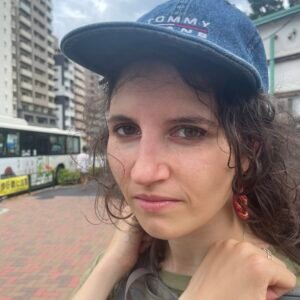
Nell Wright is a writer, translator, and visual artist whose work has appeared in The Paris Review, The New Yorker, Poem-a-Day, and elsewhere. (Photo credit: Benjamin Krusling)
- Published in Issue 34, Poetry, Translation
SPLIT UNIT by Ryan Bender-Murphy
For so long, the first thing I’d see in the morning was Gabby, her head against the pillow, and it was enough to complete the day. I didn’t need to look at anyone else or go anywhere else; I could simply go back to sleep. But whenever I woke and saw her, I thought I was still dreaming, so I’d get out of bed to prove the existence of the day.
One day, I woke up and wondered where we would go together, as if our waking had fused into one, our pairs of eyes reflecting themselves back. It was in this later stage that I knew we needed a change. Gabby agreed.
“We never go anywhere,” she said.
“We ride the bus all the time,” I pointed out.
“Yeah, but we get off to look around, not actually buying anything, or we browse for hours to buy the cheapest item in the store.”
“We go to parks.”
“And they have grass and water and dogs running like mad. And let’s not forget the poop smells. Vague, aerosolized feces.”
“Are you breaking up with me?” I asked.
Gabby laughed. “Calm down, Colton. I’m just saying that it would be nice to have somewhere we HAVE to go, or else we’d be missing something important.”
Our purpose for riding the bus would be, we decided, to see each other, bright and early, dark and late. We found a listing for an apartment that addressed our concerns. In the deteriorating economy, the city had gotten creative with building affordable housing. In this case, the landlord owned a “split unit,” which was two renovated breakrooms in buildings six miles apart from each other. We slept separately, but Gabby took the bus in the morning to greet me with the new day, and I visited her at night. We said hello, cuddled, and then went on our merry ways. It certainly seemed like a lot of travel for a brief stay, but that’s how we liked it—spicing things up, using distance as our shock to the heart.
Of course, this arrangement hinged on the fact that the bus drivers never checked if we had paid for a ticket, and we weren’t blocked from entering, so we could skip paying and nobody would be the wiser. Generally, Gabby and I paid to ride, but that was back when we were riding occasionally and with cheaper rent. We used this crisis of love, in other words, to justify our stiffing the metro, which made the bus all the more exciting.
There came a day, however, when a man wearing a neon-green vest entered the bus. He carried a tiny machine that he used to tap each passenger’s bus card. After doing so, he said, “You’re good” or “You didn’t pay,” writing the latter down for a citation. Apparently, the crumbling financial institutions required the metro to extract more money from the lowly masses. I watched the guy work his way down the aisle, anticipating his chastising me for stealing transit, but he hopped off midway, as if shaking down the elderly and the infirm at the front was satisfying enough.
I told Gabby all about this when I got to her half of our place.
“Maybe I can pick up a shift,” she said. “That should be enough to cover the buses.”
“Another shift? But you already work full time,” I said.
“Not a baker’s full time—that’s forty-eight hours. And if I go ‘full,’ Johanna says she will take me to the back room, with the wood-fire oven.”
“You wouldn’t be exhausted?”
“Colty, hon. The flame would keep me going.”
Gabby went full baker not too long after, but she immediately felt the toll of the extra eighth hour, which required her to work on Saturdays. She ate out more, cutting into the budget, and skipped seeing me on Saturdays and Sundays.
“I’ll come those mornings,” I said. “But you have to cook more during the week.”
“Why don’t you take another shift at the hotel?” she asked. “Then we’d be even again.”
“I’m in a basement all day, watching machines spin. One more shift and I’d be committed.”
“Committed…yeah, if only you could be that now…”
Not wanting to disappoint Gabby, I asked my boss Rene if I could work one more day. Because I showed any initiative, I was immediately promoted from Laundry Clerk II to Laundry Clerk V. My role was entirely different now. Instead of looking at the machines, I collected all the linens. And because of my pay increase, I didn’t have to work an extra shift.
“You will see things,” Rene warned me in his office. “But you need to act like a surgeon. Grab the sheets, the casings, the towels, and get out. You’re not here to interpret, to judge. These rooms aren’t people. And whatever the people do, that’s only for them to know.”
“What things?” I asked.
Rene wedged tobacco behind his bottom lip and sprayed Febreze on his feet. “Not everyone can live a blissful life at home, Colton. They need a second home. One is for reality, and the other is for fantasy. But even fantasy leaves its dirty traces behind. Fantasy has a grime that requires cleaning. You understand?”
“But what will I see?” I asked.
Rene spat a black rope of chew onto his desk. “You’ll see what you’ll see,” he said, wiping his spit up with a tissue.
Over the course of a week, this was what I saw: chairs turned over on the carpet; side-table drawers tucked into the sheets, labeled “Mommy” and “Daddy”; urine stains on the sheets; feces in the bed; blood smeared on the walls; lipstick kisses on the TV; a bucket of ice, now water, with a dozen fake nails floating around; diapers wrapped in towels crammed into the bathroom sink; mattresses stuffed into the tub, soaked with water; hamburgers with holes in their centers left on the toilet.
I had been alive for a few decades. I had browsed the web plenty. And yet, I knew very little of people, it seemed. Everyone had filthy desires, but they were kept hidden in the second home. Thankfully, for Gabby and me, we were each other’s hidden desire. When one of us visited the other, we were inside the second home.
Or was it that the second home was when we were alone?
This thought came to me when Gabby skipped several of her bus rides because she was too tired from work.
One evening at Gabby’s, I asked her about it.
“What gives? I thought the flame would keep you going.”
“Sorry, Colty. Every time I pull a scorched ball of dough out of the oven, Johanna shakes her head. I thought I’d catch on faster, but I realize now that I’ve been babied with toasters, microwaves, and electric ovens.”
“Are you not coming over anymore, then?”
“Well, now that you mention it…I think it would be best if I stayed here during training. Once I’m done, I’ll have a regular schedule. I may even make enough so you can work less. Speaking of which, how is the upstairs treating you?”
“I’ve seen things…”
I told Rene the same thing in our weekly meeting.
“You’re doing well, Colton,” he said. “The fact that you do the job at all means you’re overachieving. But, what’s this? The rooms are getting to you?”
“Well, I’m in a relationship,” I said.
“Oh…have you had…the visions?”
“…yes.”
“Tell me.”
“I swing the door open,” I explained. “And what I see is Gabby stretched out on the bed, candles lying around her like in some pagan ritual. She jolts up, knocking the candles onto the floor, catching the place on fire.”
Rene nodded solemnly and pulled a box of Oreos out of a cabinet. He twisted one apart and set the two pieces on his desk. He repeated this process until his desk was covered with rows of bare and creamy cookie halves.
“I want you to stay upstairs,” Rene finally said. “Stop seeing things. Not a single person is in these rooms.”
For a while, I followed Rene’s advice. I saw nothing. I put my head down and did the work. During this time, Gabby sent me dough pics, but as the bread looked less like the dark side of the moon and more like its opposite, the texts decreased, then stopped. I was eventually left to my own devices.
One day, I entered a hotel room in which candle wax had been dripped all over the sheets. I knew that Gabby hadn’t been there, but I couldn’t take my eyes off of whatever mess was left in this room, as well as all the others, judging it, interpreting it, which only made “the visions” worse. Now Gabby was on a bed, surrounded by candles, covered in an enormous loaf of rustic bread, and the wood-fire oven was perched over her. She didn’t even try to get up. Instead, she invited me to watch, to see that the second home was indeed each of us alone.
Soon, I went into a frenzy, linking every soiled linen to Gabby. I thought for sure I’d have to quit, or maybe get fired, but then something else happened. I walked into a room where a woman was tucked into the bed, fast asleep.
At first, I assumed the woman was asleep, but because she looked so still, so calm on her back, I started questioning things. Was she asleep? Or was she dead? Had I walked into a crime scene? The check-out time was hours ago, and the receptionist would have noticed if someone hadn’t left.
I ran into the hall, but nobody else was around, and there was no yellow tape anywhere, so I reentered the room.
The place looked almost no different from its original state. Chairs were pushed under the table. The TV remotes were lined up on the desk. The chocolate mints were resting in their wrappers on the side table. The toilet paper was hanging with a tri-corner fold at its end. The only disturbance was that the woman was lying in the bed.
Was she real? Or perhaps a doll?
I stood next to her and saw that she was breathing faintly, so I poked her a few times, then shook her shoulders.
“Hello?” I said. “Hell-o?” H-E-L-L-O!”
The woman’s eyes opened very, very slowly. Eventually, she looked at me as if she had known me, or maybe as if she had anticipated this wake-up call.
“What day is it?” she asked, groggily. I got her some water, which she gulped down.
“Friday,” I told her.
The woman grinned, then smiled widely. “I can’t believe I’ve done it,” she said.
“Done what?”
“I’ve slept for five days straight. I could never do that at home.”
“Where do you live?”
“Down the street. It’s my husband…he snores so loudly, and sometimes he walks around at night, and he takes the sheets, and he fiddles with the windows. I love him with all my heart, but as you can see, I needed some rest.”
“You’re not having an affair?” I asked.
The woman laughed. “Heavens, no! Not unless dreaming is cheating.”
“I suppose not…”
For so long after that moment, the first thing I’d see in the morning was my other pillow, vacant and bare, and it was enough to ruin the day. Whenever possible, I refused to do anything else; I’d simply fall back to sleep to prove the existence of dreams.
One day, I woke up and wondered when Gabby and I would lie together again, as if our dreaming had fused into one, our pairs of eyes staring into the abyss of each other’s lids. It was in this late stage that I knew we needed a change. Gabby agreed.
ONCE, THERE WAS HOME, by Karla Hirsch
once, there was time, there were moments that made up your life, there were hours and minutes, a morning’s routine, the bitter coffee you brewed in the copper pot you had longer than you could remember, mixed the hot liquid with sugar and spices, let it fill you awake to prepare you to journey to work, on the bus that always took you—the driver a sweaty companion whose voice had almost become a friend, though you never learnt his name; and so the days and the months and the years continued, marked by the habits you expected to one day lead you to a fullness of life, a silent agreement with yourself you’d arrive somewhere, achieve what you must achieve; but before you can get there, a decision is made, in a room with tiles that throw back every word, or an office whose plushness has grown with every new leader, or perhaps, the choice is made in a bar, during cigarette breaks at a global conference—a secret handshake, so secret no one will ever remember it—
but wherever it comes from, it comes to you with bombs and bombs, with raging thunder, with roars and rumbles that rip through your life, a giant hand from above, seizing buildings and houses and trees and it crushes your city, your schools, the yellow-gray stones of your mother’s house, then releases them in a shower of rubble that rains every day now, till all that you are and all that you have been trembles and shakes and the moments that made up your life lose their footing and you with them, among dust,
everywhere,
and smoke and the loudness of fear and you watch how your hours tumble to ashes, how limbs are ripped from those you once knew, who you haul through the fallout of every bomb, through the mist that taints every breath with a stench you think you will never unsmell, and you feel the edges of rocks and rubble press through the soles of your shoes, the stones still shaking, still longing for what they once were, the stories they housed, the one thousand breakfasts and two thousand loves—till one night, you look down, see your feet clutching the ground and you think of your habits, the fullness of life you once strived for, and know there is nothing here anymore, so
you choose
a leaving of home for an unknown future, and you go with what you have left, which is mostly your body and mostly your heart and a hopeful remainder of your mother’s inheritance that gets you to Istanbul and then to Bodrum in vans that you share with an ocean of faces, with eyes that search for the same thing as you, with the constant pressure of arms against yours, the air always dense and thick and about to run out and when the car stops at last, you start walking and walking, you have never walked this much in your life, but the air is clean, no dust, no sweat, so you tell your feet to lift and you tell your heart to beat and you tell your eyes to unsee the people falling behind, the mother who eventually breaks down by the side of the road, her newborn resting against her chest, attached to her like a limb she can’t shake, barely out in the world, and although she knows that her journey ends here, she can’t bring herself to detach him, so she keeps him with her, on her, his weight the last thing that binds her to consciousness till she can’t feel him any longer and she leaves, at last, and the new-born son remains in the night, wailing until the cold takes him too, until he becomes no more
than a fleeting moment,
and you walk past those fragments of sorrow, longing to leave them behind, your eyes barely open and blind to the hours and seconds and days, dirt growing on you, an obstinate second skin, a shield you imagine protects you against all that is yet to come and when you crouch on the raft that carries you over the sea, you hope it’s an ally against the waves that grasp for you, against the salty water that eats at you, but then the waves get greedy and reach and reach and try to pull you down, until you wrest and yank your body from them and onto dry land where your journey continues into another strangeness, a different van, the darkness only lit by a ray of sun that falls through a crack and becomes a beacon your eyes hunger for among the stench of a thousand journeys, a thousand fears, but then you wake up one day and realize that you’re almost there, or somebody says you’re almost there, or you see a road sign and think I’m almost there, so you pick yourself up, pick up your feet and carry yourself to a train that glides through the dawn, past more signs speaking Hungarian, then German, past fields that expand into yellow, past a deer, ears alert to the train that interferes with its life for seconds before you rush past it, imagine it lowering its head, forgetting the train, back to its own existence of meadows drenched in light, of grass, knee-high and wild, moving idly in the breeze, you and the train now a memory only in your own mind, one you hold on to when the train slows down, rolls into a station, releases you to a platform crowded with others and then voices rise, radiant like bells,
bright,
like unburdened air that has never known the tear of an explosion, and the voices grow into waves of sound, and they tell you, You’re here, and you think, I am here.
I am here.
DIMINUTIVES by Gabriela Valencia
Like most divine relics I own, I have no memory of where my keychain came from. Was it college, high school, earlier than that? Joined in a loop to my home, my shed, my office, is a tarnished pewter scroll with a miniature relief of the Antigua Basilica de Guadalupe, windows tiny dashes below its crested rooftop. Behind the basilica, on the other side of the scroll, is an egg—poured resin the size and amber color of an immature desert beetle. If you look closely, into the body, there is an image of Our Lady of Guadalupe. The Virgin Mary? I suppose. Dusky face, head turned slight. At the bottom of the scroll, a raised script says, Virgencita Cuidanos. How funny that is. That way of saying it in Spanish. Not Virgen—Virgencita. The emphatic diminutive. How it calls upon a little virgin to look after us. Or no. A more tender virgin? A virgin so familiar as to be called upon as intimate?
§
My mother, in an idle moment, will sometimes pinch my breast. Snapping her arm out, almost as if milking a nipple once and quick, but just to the side of it, on the fleshy part, enough to suggest I watch out, that she might have really done it if she wanted to. She will squeeze any lump of fat, lift a shirt to expose a stomach, or stick a finger in an armpit and run away like a child playing tag, ravished by delight.
Where did this come from? My father maintains she wasn’t always this way. Suggests that with time she is becoming more cunning, more physical of humor, more like her mother. To which my mother balks. But when he asks, Is that a bad thing, to be like your mother? she replies on edge, No, my mother was a saint!
Once, upset by her antics, sore of flesh, I chased her around the house. She begged, Please, please don’t tickle me! Though, clearly, I was not going to tickle her. We rounded into the sala, where, cornered, she sat, bowed her head, and tucked her hands like a handkerchief into her lap, smaller and smaller, between her knees until her source of power could no longer be seen. I knew she was attempting to appear meek and humble (a phrase she often uses to describe her sons, to describe a dog’s upturned eyes). What was I supposed to do with that? How could I argue with my mother now, with her looking like something between La Virgencita and a wayward girl in timeout? And what would I look like, scolding her for having some fun?
Her eyes only pretended to close. After a short silence, she whipped her arm out and pinched me. Again. I jolted as if rising out of my own body. Her head hinged open like a plastic easter egg—HA!
§
The sun is always rising in the Badlands. Again and again, in its thousand horizons. Paleosols, those iron-rich sediments, stripe rocky pinnacles and buttes into so many simultaneous pink dawns. All morning. All morning, I seemed as if I would fall off the edge, shuffling in untied boots toward sloped and jagged cliffs. Taking my body over imaginary lines, making motions toward the dark interior, the night morning still contains. All morning you winced.
It was still the dawn of our relationship. We felt we knew each other deeply, shared bodies and woke from shared dreams. Still, once in a while, in a snap, we became indecipherable to one another. A muddied image. I could see it, looking back at you from the edge. You didn’t know what to make of me.
Together on a desert frontier, we began reading American folklore from a discount Wall Drug encyclopedia, seeking recognition in creation myths, feeling ourselves on the brink of our own beginning. But we found ourselves dog-earing stories of the trickster gods instead. Laughing, scratching our heads, sticking our fingers into the armpits of the page—AHA!
Most enduring was the story of the Mudheads. As the Zuni tell it, a man begets many children out of incest and, ashamed of what he’s done, beats himself and buries his face in the earth. The children are born mud-headed, with bulbous welts of tuberous earth for each eye and mouth, and while they cannot live ordinary, integrated lives, they assume many sacred roles. Curers, sages, tricksters, clowns. When an Old Woman tries to teach the Mudheads to copulate, one sticks his penis in her ear, another her elbow, her knee, her ass. And the Old Woman laughs each time. This being sacred.
Watching your face contort in worry, I could have mentioned the trickster gods. Could have argued it was the Mudheads waving me over into the picturesque, trying to trip me into one of their lessons, a lesson I surely needed. Instead, I told you about the women in my life.
When my grandmother was dying, my mother told me to hold her mother’s hand. When I approached, it was my grandmother who took my hand with hers, knobby and dark, and began inspecting mine as a strange derivative, remarking more than once at my smooth skin. She began referring to me, addressing the room broadly, as The Girl. I was fourteen. And perhaps because of the nervous silence, perhaps because she’d long laid there surrounded by a watchful crowd, my grandmother began telling her favorite jokes. All dirty! The Priest and the Donkey. The Cunning Old Woman and the Naïve Traveler. Perhaps because she knew these would be the last words she’d ever say to me, perhaps to get a rise out of her daughter, she held me unshakably. No one pulled me from this, from her, and tensed, eyeing one another on edge. I don’t remember laughter, but there must have been. What else could have carried us into the next moment?
Hand in hand, we walked together back to the golden beetle, the borrowed RV parked in the dry dirt lot. We sat at the wooden picnic table beside it, and abstracts of legends surrounded us like smoke. In my bag, under rolls of clothes needing to be washed, under the beat-up encyclopedia, there was that keychain. La Virgencita without any keys—no home, no shed, no office. But that night, a thousand sunrises. And around the rim of the Badlands, as many prairie dogs. Rising out of their dens like whack-a-mole. Or like Jesus on the third day. That prank of all pranks.
§
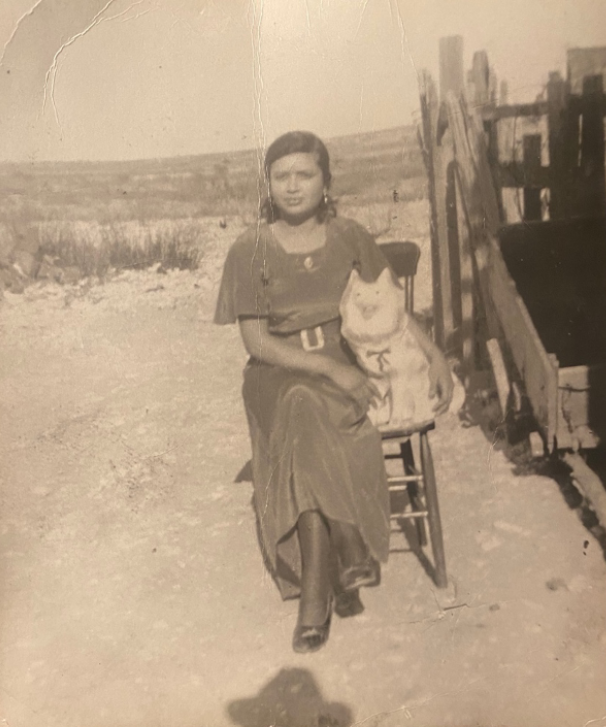
In the photograph of my grandmother at her youngest, she is beautiful the way the earth is beautiful. A chipped and dusky outline of Girl wedged on a wooden chair beside a wooden cart amid the pale bright expanse of desert. This is the desert where, as my mother tells it, she bartered for shawls and bags in Spanish and sometimes Kickapoo, rarely endeavoring the flat monosyllables of English for distaste of sounding, in her own words, like a barking dog. The desert where, as a child, she hunted wild turkeys with stones carried in the lifted hem of her skirt. Where at the age of eleven, she married my grandfather, twenty-two, to escape her father’s rape, and as a child of fourteen, began having children of her own. She is wearing what my mother tells me was an emerald-green velvet dress but on film remains slate. A ceramic Sheltie tucked comically beneath one arm, a bow at its collar matching the rosette at her own. Insouciant, eyes dark and squinting. At the film’s periphery, as if peering in, the shadow of a man’s hat.
Once, as children, my brothers and I attempted to spy on her this way. Or perhaps the way we’d seen in Scooby Doo. Our three totemed heads peaking through her bedroom door ajar, unsure of what we’d find. We watched her braid a meticulous silver chain of hair, winding and pinning it to her skull. Ever demure, powder-soft, though her expression confused me. We watched her in the vanity’s reflection, foolishly thinking she could not see us too.
Then, in a snap, locking eyes with us in the mirror, my grandmother’s face contorted. Lips tucked and snarled. Eyes flayed wide and white. A face of knobs and lumps. We scrambled, terrified, down the long hall.
I do not remember her laughter.
§
Do you remember? You waved me gently back to you. Told me, pointing out the rough contours of where I’d just been standing, that loose rocks were sometimes packed with loose gravel, loose dust. The powder-soft blush-brown dirt the result of the razor-sharp underneath. How ready some were for disintegration, for breaking into smaller and smaller pieces that would, in a breath, fall away, taking people with them. That if I fell and survived, the rescue would be long, would cost us what little we had. I winced. How did I not realize?
We felt for firmness with an outstretched foot and found a safer ledge to sit on, our four legs lain atop a soft slope rather than dangling in free-fall. The sun setting, the sunrise in the sediments appeared more vivid.
Virgencita Cuidanos. Like the sacred, care is so difficult to understand. Cuidar (to care for, to look after) from cogitare (to consider) from agitare (to move to and fro) frequentative of agere (to set in motion). Curious lineage. How the mind turns on itself.
Did I ever tell you?
You told me the story of the raccoon. Full winter. Where everywhere there should have been green, the earth had frozen grey. You were about to let the dogs out, but before you did, spotted a raccoon circling in the north field. Unusual to witness midday, you decided you would scare it off. To keep the dogs from running after it, from picking a fight with an animal, one who may have been sick. You picked up a long stick and approached it.
You hoped your approach alone would be enough to send it running across the field. Enough to signify. But it only seemed to follow you. Slowly, without aggression, wherever you moved, to and fro. It wheezed. Its eyes glazed over.
You thought about dreams your mother had in sickness. How, long after she’d recovered, she felt the need to tell you about the beautiful music, the otherworldly feeling. You imagined this animal had rabies, was nearing death, conceivably hallucinating. I thought maybe it mistook me for its mother, you said. The way it followed you, seemed to trust you, to need you.
As you recounted, I considered my own mother. How, when she and I would drink coffee together on the patio behind my childhood home, she’d lift her legs and gasp at the sight of a chipmunk or mouse darting a hundred feet away. Had this raccoon stumbled into the yard, it would surely be enough to end our leisure, to send us both back inside. Her first and hurriedly. Me, her lingering shadow.
I considered what my grandmother might do if she were still with us. Would she find a stone to throw, to knock it dead once and for all, like she’d done to all those turkeys she’d hunted as a girl? Or perhaps her mercy would take the form of another joke—one sharp and particular as stone, one with an impact equal to the image of the animal’s pleading gaze.
Were it me, would I know to do anything more than simply watch it, turning, turning, like endless time? Is looking, merely, the child of looking after?
You considered bringing it leftover chicken from the fridge. Considered borrowing a gun from your father. The world frozen over, you decided to bring it some water in the plastic bowl you kept lodged under the elm. Part of you remembers it drink, wrinkle its face, hiss. Another part of you can’t remember if it merely looked down into it.
A few days later, you found it dead, not far from where you’d seen it in life.
§
The sun rises. Easter morning in San Antonio, my grandmother bent over the side of the hotel bed, my head in her hands like an urn. In Spanish, Ah, look at those eyes… Never close them.
Beside us, the hotel balcony, and below, the well-dressed shuffling into cars and cabs for Mass, drivers patting dry slick necks, children like fabled children, jumping with starry hands to catch the green anoles as they crept up stucco walls. Around us, cousins sauntered in and out of the room sweet-smelling and rosaried, none passing so much as a glance toward our grandmother or her unyielding grip on me. I was eleven. Absolutely, she said, eyes not yet hinting cataracts. A face murderers confess to.
My mother appeared with a short laugh, easing me away by the shoulders. She means your eyes are beautiful, mija. That’s all. And years later, when I told you, you agreed. Said my grandmother must have been picturing some outlaw staggering through saloon doors, taking my face in both calloused hands, rattled and earnest, to tell me all he’s been through. But I wasn’t so sure.
Could I have spent my whole life wondering what she meant? Turning it over in my mind, carried inward by its darkness, in ever shrinking spirals?
But later that day, my brothers heard the story only to burst out laughing.
She means your eyes are humongous, idiot! So open it’s hilarious! Bulbous! Protruding eyeballs! HA!
Mudhead, all ass, I never get the point.
§
I remember my grandmother’s dogs scrambling up and down the halls of the house. Chihuahuas. They were small. They were loud. She joked they were good for catching cockroaches, the way a housecat might catch mice.
Their names were Benito, Carlos, Lupita… —No. Had my grandmother named her dogs after her own children? Confused, I asked my mother what she thought about that, and how she felt about the mother dog being named for herself, Lupita for Guadalupe. My mother shrugged. But something in her face diminished.
It wasn’t until years later that I ever thought to ask about my grandmother’s name. Guadalupe, my mother said. Doña Lupe.
You’re named after your mother?
Mija, I don’t know.
My mother disappears behind her mother like a child behind an interlace of legs. Among the dogs, was it she mothering her brothers? Or was it my grandmother mothering her sons, my mother nowhere to be seen?
I close my eyes. No, my eyes stay open, but I close my eyes. Do you know what I mean?

§
The sun rises, and we approach what seems like home.
Hand in hand, we walked the rocky grey of Toadstool Geological Park until it became the miraculous green of an endless meadow. Then kept walking until it greyed again, iridescent, crumbling. Two Old Women hundreds of paces away waved at us, told us we were going the wrong way. Just so you know. We couldn’t make sense of them. It’s true, there were arrows, meant for following one of a few routes. But the park, aside from its trails, was designed for wandering. Posted signs encouraged, for some reason, the gathering of rocks, which meant combing through the grey in any number of ways.
In our confusion, the moon moved slowly into the shadow of the earth. The grey world had gone violet, then dark. In the van, we unlocked and swiveled the seats, making a table between them. You began working a meal at the narrow stove an arm’s breadth away. A few short years from now, it would be in this van, on a trip much like this one, that you’d propose to me. It would be with an improvised ring—the plastic pull-tab from a carton of milk—which became its own divine relic. Even after we replaced it with gold, I would still carry that first ring with me and feel its protection always.
Go see it for the two of us, you said, elbowing out toward that eclipse just beginning.
From the outside, I watched you through a dust-covered window. Your body shifting, head turning as you moved plates from side to side.
Years later, years into our marriage, it would dawn on us. Remembering the bright sun on our pale dry skin. The eagerness of thumbs looped into backpack straps, our ankles flexing as we spun to face each other, over and over, walking forwards and backwards though the lush green grass of forever. This had been rattlesnake season. We hadn’t even been thinking about it. We had been in the worst of places, the green inside the grey, where most rattlesnakes lived camouflaging their bodies to the earth. It would have been our terrible luck to step on one, it being an hour on foot back to the van and maybe another hour on the road to the hospital. How had we not realized?
Far across the lot, the Old Women’s campfire. Orange flames, a violent rush in near-total black, sliced upwards in direct line to the moon, which, as it slid fully into our shadow, glowed a ferrous red. In the moment of full eclipse, coyotes unseen but near yipped wildly.
I snapped my head to see yours, already leaning out from under the golden wing. Your mouth, each eye, round with wonder.
§
Images emerge only as afterimages.
In memory, my mother tells me to hold her mother’s hand. To walk with her. The ground a stony patchwork like cracked slabs of desert earth. What do I recall? So little. How slowly she walked. Slower than I ever thought possible for all the quickness within her. Gentle as a cow under the pecan trees, our single body, our four feet in dappled light.
In imagination, here is the future. Everywhere I enter, I leave a key firm in the lock. I rush to whatever is inside. You, the dogs, the work to be done. The keychain, La Virgencita, her little visage encircling all things, dangles a silver umbilical. The door swung wide open.
- Published in Creative Nonfiction, Issue 34
SYRINX by Alison Mandaville
After five years it’s a vague harassment,
your name in a stranger’s mouth, my ear,
a soft punch up from the gurney. Still—
slight birds wake me with such repetitions:
the branch point adjustment of throat valves, labia
in tension, not warm, not cold-blooded. A liquid resonation,
two resonations, a final exhalation of atmosphere.
What are birds? You once asked.
They are just birds.
No, what class are they?
You mean like vertebrates?
No, like – Ornithers. Ornithitius. Ornithologicals.
They are just birds.
A search proves it. According to birds,
they are their own. And, like the calls of debt
collectors the birds in our yard persist.
So, we acknowledge the definition
of loss: yes, that’s what that is. Brief
morning trill of what you died owing.
Syrinx: the bird voice box, located at the branch point between the trachea and bronchi and containing vibrating tissues called labia, in songbirds capable of making two sounds at once via independent muscle control (https://academy.allaboutbirds.org/birdsong/)
90% DARK by Dina Folgia
The earth did not take me when I was nine, and I hated the earth for it. Each time I came to the place where the lake met the park and pressed my back into the soggy grooves at the boat launch, I flattened and flattened. When I couldn’t sink any lower into the dirt I cried for my grandmother to come push me the rest of the way down. My father put a chocolate bar in her casket when she died, 90% dark. I reached inside to make sure it hadn’t melted yet, and when its wrapper gave under my trembling hand I collapsed. So really, it’s no surprise that when my body surged up and out, aging as humans do into unwieldy mortality, I wanted to pick my death the way a farmer picks from his bushes and feeds himself his own fruits, concerned not with the way their sugars flow. To enjoy from beginning to end, even out of the webs of my fingers. When the lake broke its banks last August, my love and I returned to lay in the mud. I did not push my hands into the dirt. I did not ask to sink. Even the sliding mud held us steady and alive, allowing me to feel for once a future with no certain end. Its sugared, bitter taste. Two women old and grinning who open their tethered palms to see between their sweet hands no happy geode of pills.
DAY 559 by Kim Jensen
If you hit the snooze
you’ll have a little longer to live
in the body of a wolf
to gnaw at a bone in the woods
parading the entrails back to the den
you’ll have more time to be a nobody
an unwanted wallflower
wearing not even half a dress
a few more minutes
to feed a man’s sperm back to him
with a spoon
if you hit the snooze you’ll have
a few more minutes
to run out of gas in the sky
to drop from a cliff
to watch your liver dangle
from a piece of twine
pacing the narrow air
a soundless pendulum
a few more minutes in an icy sweat
gasping out of breath
trying to thread a frayed rope
through the eye of a loop
to save your kids
from falling into a mineshaft
to certain death
if you hit the snooze
you’ll have a moment’s rest
before you’re forced
to face another day
where children are burning
alive in tents
before you’re forced to remember
everyone who has the power to stop it
is already awake
and has been for years.
GHAZAL OF BORROWED GODS: A CENTO* by Laura A. Ring
Her funeral filled the road. O it is the old old
myth. Gone by many names. Trust: I am no God.
A chapel has fallen into ruins. I believe
in the devil. Worse, that there are no gods.
Outside, one statue keeps its head.
The temple roof. Stand and remember its gods.
My dead sisters looked worried. I had forgotten
to provide the stars. I know I frustrate God.
In the rainroom all the nests are cracking.
Water collects in your coffin. I did not see a god.
Sister. Sister, come lay your wound in mine.
I crouch under light. For, clearly, there were other gods.
*Seamus Heaney, Susan Howe, Aditi Machado, Norman Dubie, Donika Kelly, Carl Phillips, Marianne Boruch, Brigit Pegeen Kelly, Olena Kalytiak Davis, Charles Simic, Natalie Shapero, Sally Rosen Kindred, Kim Hyesoon, Katie Ford, Tsering Wangmo Dhompa, Victoria Chang, Laura Kasischke.
BONE ATLAS by Allison Zhang
Seventeen pounds—
the gospel weight
of a skeleton.
Mine is lighter, I think.
It whistles in the wind.
The body, a country
I was told not to settle—
its borders or cities.
I dreamed I was salt,
crushed, dissolving in rain.
The nurses said hydrate,
singing it soft.
But thirst is a clever animal—
it waits behind your teeth,
and never dies.
Once, my reflection
refused to follow.
I named each vertebra
for saints I never prayed to.
I asked for nothing.
Even the air
felt extravagant.
Still, I walked
through winter—brittle,
unfractured.
- Published in Featured Poetry, Issue 34, Poetry
- 1
- 2
